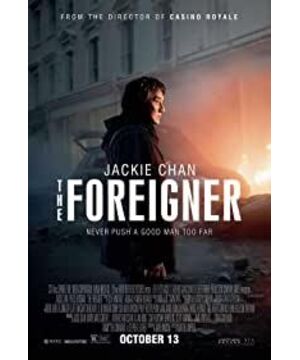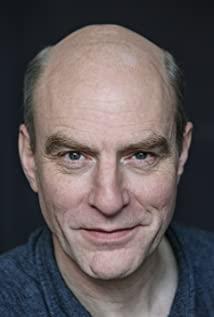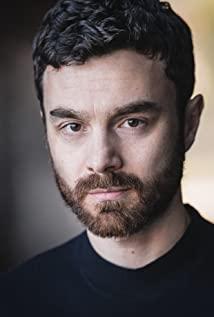It is interesting to see Jackie Chan change his usual warm and funny direction, and the different works are quite interesting. I saw someone saying that Jackie Chan is finally not playing Jackie Chan, what he said is very true haha
The original title is really interesting, but the translated name is a bit too superficial in comparison. Guan Yuming, a former Vietnamese-American special forces elite and a current British citizen, is a foreigner himself, and Liam is also a foreigner compared to the UK. Those Irish young people are also working hard to become a foreigner completely, and Sean, who came from New York, is no longer so Irish. In a foreign country, there is always a place or part of the original you belong to that deprives you of belonging. From 1986 to 2017, Guan Yuming was a foreigner to the UK from beginning to end. "I am a British citizen" needs to be repeated like this. And what is the significance of this layer of identity, from the beginning to the end, others called him "Chinaman". In the end, what did the international or racial distinction bring us this time? If it is more beautiful, it is zhengzhi, and if it is ugly, it is just estrangement. Because they are British and we are Irish, we detonated bombs, killed innocent people, for the freedom of the country; repeatedly pleaded with the government and begged the authorities to give an account, and the grief and anger of the deceased daughter and wife took him to revenge.
The fall of one person's world is just a story in other people's mouth the next day, a shocking picture report in the newspaper. And the desperate repeated pleas of the parties are only obstacles to handling the case. Only by killing a bloody path can you get enough attention to get justice for your family. When civilians look at the power above themselves, they are only deeply powerless.
Guan Yuming asked Sean in the movie, why did you, a Catholic, fight for Britain?
“ I fought for the regiment, out there religion didn't matter. We were all the same. That's it.
I'm fighting for my regiment, belief doesn't matter on the battlefield. We were all the same then. That's all. "
"Were", now what? But how different are we ourselves?
War, violence, and discrimination from ancient times to the present, which one is not because of this? Being oppressed and being ignored, in the end they had no choice but to confront each other violently and find a way out of it. But are the two sides facing each other so different?
People don't always treat others as people
View more about The Foreigner reviews











